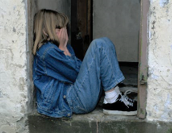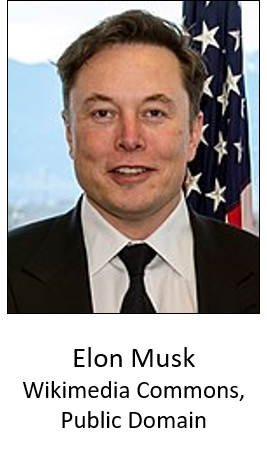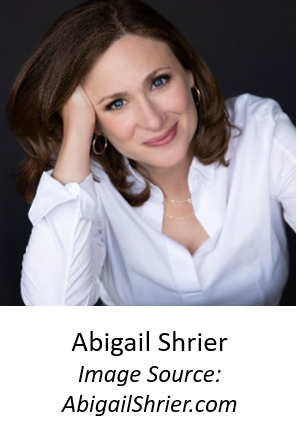Controlling the Minds of Babes: Mental Health Interventions Wreaking Havoc on Kids
As a result of social and emotional learning (SEL) standards, mental health interventions for school children have become accepted practice among mental health experts, school health centers and personnel, and some parents. For those unfamiliar with the term, SEL involves the manipulation of students’ minds “to embrace CRT, LGBTQ, and other leftist agenda items.” (See Education Reporter, September 2023). It has also opened the door to a whole spectrum of mostly unnecessary mental health diagnostic tests and treatment for schoolchildren.
 SEL notwithstanding, this push to diagnose, treat and/or medicate virtually every child is the logical conclusion to decades of government meddling in students’ psyches (as described by Phyllis Schlafly in her March 2005 report). As usual, Phyllis was way ahead of her time in predicting that all children would ultimately be subjected to mental health screenings and that the “pharmaceutical corporations [were] gearing up for bigger sales of antidepressant and psychostimulant drugs.”
SEL notwithstanding, this push to diagnose, treat and/or medicate virtually every child is the logical conclusion to decades of government meddling in students’ psyches (as described by Phyllis Schlafly in her March 2005 report). As usual, Phyllis was way ahead of her time in predicting that all children would ultimately be subjected to mental health screenings and that the “pharmaceutical corporations [were] gearing up for bigger sales of antidepressant and psychostimulant drugs.”
A brief Google search on mental health for young people results in a plethora of sites advocating for increased mental health awareness and interventions. The CDC, for example, offers a few common-sense sentences on the topic, e.g., “Being mentally healthy during childhood means reaching developmental and emotional milestones and learning healthy social skills and how to cope when there are problems. Mentally healthy children have a positive quality of life and can function well at home, in school, and in their communities.”
But then the CDC cuts to the chase:
- Mental health is not simply the absence of a mental disorder. Children who don’t have a mental disorder might differ in how well they are doing, and children who have the same diagnosed mental disorder might differ in their strengths and weaknesses in how they are developing and coping, and in their quality of life. Mental health as a continuum and the identification of specific mental disorders are both ways to understand how well children are doing.
This paragraph may be construed to mean literally anything; from finding excuses to medicate rambunctious students to unfairly labeling those who resist political indoctrination or struggle with reading because their schools won’t teach the phonics method. The process now is to diagnose most kids with some type of malady, be it ADHD, anxiety, depression, or another behavioral disorder.
A May 6 New York Times (NYT) headline asks “Are We Talking Too Much About Mental Health?” after which the article acknowledges the growth of mental health services for children and teens. It notes that teens often “narrate their psychiatric diagnosis and treatment on TikTok and Instagram,” indicating that such diagnoses have become something of a badge of honor to be flaunted by kids on social media.
The NYT reports that school districts alarmed by students’ anxiety and distress “are introducing preventive coursework in emotional self-regulation and mindfulness.” A logical question might be what further academic lessons will be sacrificed on the altar of leftist agenda items, now including “preventive coursework,” and how much lower will the already compromised NAEP assessment scores fall as a result?
Researchers sound alarm
The NYT reported that some researchers in the United Kingdom and Australia found that “awareness campaigns” about mental illness help some who truly need treatment but negatively affect others, “leading them to over-interpret their symptoms and see themselves as more troubled than they are.”
According to these researchers, trials of school-based mental health interventions showed that students “who underwent training in the basics of mindfulness, cognitive behavioral therapy, and  dialectical behavior therapy did not emerge healthier than peers who did not participate, and some were worse off, at least for a while.”
dialectical behavior therapy did not emerge healthier than peers who did not participate, and some were worse off, at least for a while.”
New research in the U.S. shows that “self-labeling” among young people as depressed or anxious “is associated with poor coping skills like avoidance or rumination.” In other words, students who believe or are led to believe that they have mental illnesses such as depression or acute anxiety may actually have less serious problems that nonetheless need to be addressed, preferably by their parents.
Essentially, the cited research found that creating awareness of mental health issues, symptoms, and the implication that students could be suffering from such maladies only served to contribute to an increase in their frequency.
University of Oxford research psychologist, Dr. Lucy Foulkes, believes mental health awareness campaigns create “this message that teenagers are vulnerable, they’re likely to have problems, and the solution is to outsource them to a professional.... It’s possible that something very well-intended has overshot a bit and needs to be brought back in.”
Ultimately, the NYT comes around to the prevailing wisdom that mental health interventions for young people are nonetheless necessary. Among others, the article quotes Dr. Andrew J. Gerber, president and medical director of Silver Hill Hospital and a practicing child and adolescent psychiatrist as stating: “Really, if you think about almost everything we do in schools, we don’t have great evidence for it working. That doesn’t mean we don’t do it. It just means that we’re constantly thinking about ways to improve it.”
Therapy causing misery
Abigail Shrier, author of Bad Therapy: Why the Kids Aren’t Growing Up (see Book Review, this issue), told Fox News personality Brian Kilmeade: “No one’s had more therapy than the rising generation.”
An article on Bizpac Review.com described Shrier’s March interview with Kilmeade, whose show appears on the Fox News Channel. Shrier said:
- No one’s had more psych meds. No one’s had more talk about feelings ... No one has had more therapeutic parenting and therapeutic intervention in school, social-emotional learning, and you know what? It’s not doing them any good. In fact, I would argue it’s counterproductive. It’s making them worse.
Shrier believes even well-intentioned therapists aren’t helping. She calls them “arsonists” who claim they’re “just the firemen responding to the fire” that the mental health community contends is the crisis situation facing today’s youth. “We have let these kids become so frantic and so worried, and then we bring in these mental health experts ... supposedly as the solution,” Shrier said. “They’re not the solution. They are the worry-makers, and they’re creating the problem.”
community contends is the crisis situation facing today’s youth. “We have let these kids become so frantic and so worried, and then we bring in these mental health experts ... supposedly as the solution,” Shrier said. “They’re not the solution. They are the worry-makers, and they’re creating the problem.”
Although perhaps not surprising, Shrier found in researching her book that the political leanings of parents have an impact on their children’s emotional wellbeing. She found that while teen girls from liberal families “do the worst in terms of mental health” regarding anxiety and depression, studies show that teen boys from liberal families “have worse mental health in terms of anxiety and depression than teen girls from conservative families.”
Schrier assured Kilmeade that therapy and medication are necessary for some kids, but that “every medical intervention, every drug — even Tylenol — comes with risk, and therapy does too.”
Apparently, the unconventional billionaire Elon Musk shares Shrier’s misgivings about psychological manipulation. He posted this directive on X (twitter.com) in February: “Put ‘Never Went to Therapy’ on my gravestone.” Musk is the father of 11 children and claims to have never graced a psychiatrist’s couch. It may be fair to speculate that his children are being spared mental health interventions as well.
Plying kids with nosy questionnaires
In her 2005 report, Phyllis Schlafly described the “New Freedom Commission on Mental Health,” which was created by an executive order of President George W. Bush in 2002. The report that followed in 2003 decreed: “Schools must be partners in the mental health care of our children. Schools are in a key position to identify mental health problems early and to provide a link to appropriate services.”
The Commission’s report called for “‘routine and comprehensive testing’ and mental health screening of every child in America, including preschoolers,” and recommended “linkage” of these tests with “state of the art treatments.” Phyllis pointed out that this meant “prescribing more expensive patented antidepressants and psychostimulant drugs such as Ritalin.”
A key part of the screening program was what she called “nosy questionnaires,” which were little more than the data mining of a child’s personal attitudes, beliefs, and behaviors. For years, Phyllis warned about these intrusive surveys, and her 2005 report provided as an example a Columbia University program called “TeenScreen,” which featured a survey containing leading questions about students’ feelings. A few sample questions included:
featured a survey containing leading questions about students’ feelings. A few sample questions included:
- Have you often felt very nervous or uncomfortable when you have been with a group of children or young people, say, like in the lunchroom at school or at a party?
- Has there been a time when nothing was fun for you and you just weren’t interested in anything?
- Has there been a time when you felt you couldn’t do anything well or that you weren’t as good-looking or as smart as other people?
Over the years, these questionnaires grew ever more inappropriate, with questions about children’s sexual habits and views, practices, and experiences becoming standard fare, as well as intrusive questions about family life, religious beliefs, etc. All this data ends up stored in vast government and private sector databases that will be linked together, with the goal of following (and controlling) kids throughout their lives. (See Education Reporter, September 2022.)
As Phyllis noted many years ago and experts like Abigail Schrier echo today, the reality is that parents’ rights are being sacrificed on the altar of mental health. Phyllis wrote in 2005:
- The real issue is the fundamental right of parents to decide what medical treatment is appropriate for their own children. Coerced mental health screening programs have no place in a free society. Neither does coerced medication. The government does not own you or your children, and it has no legitimate authority to interfere in your family’s intimate health matters.
But purveyors of mental health awareness campaigns, including so-called “mental health fairs,” justified psychological intervention and treatment to the NYT: “It’s not ‘You need it, and you don’t.’ We want everyone to have it, because you just never know.” [Emphasis added.] And so the juggernaut rolls on.
Want to be notified of new
Education Reporter content?
Your information will NOT be sold or shared and will ONLY be used to notify you of new content.
Click Here
Return to Home Page
